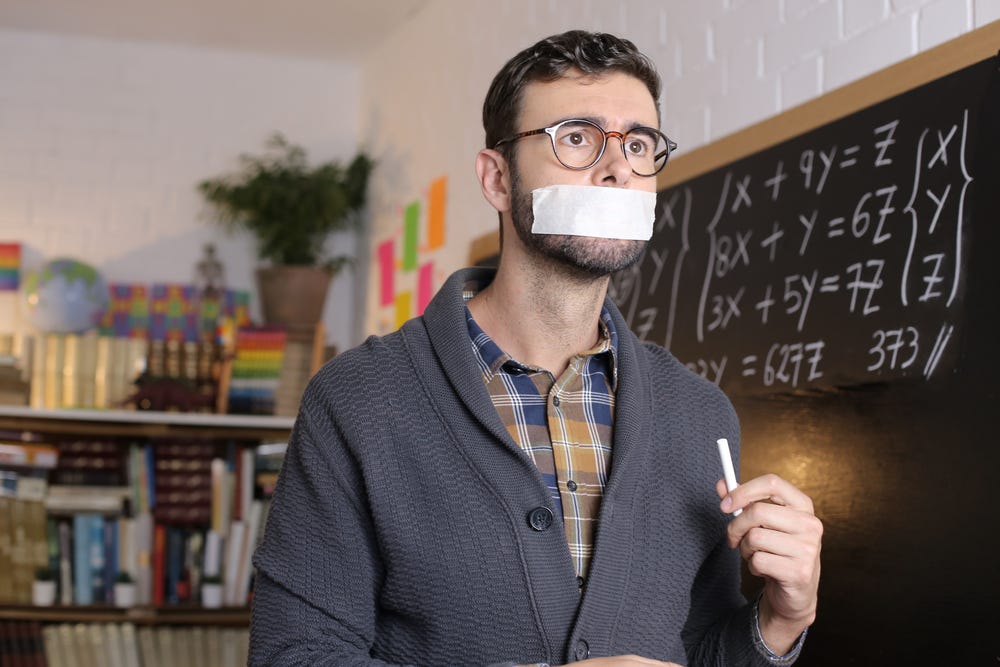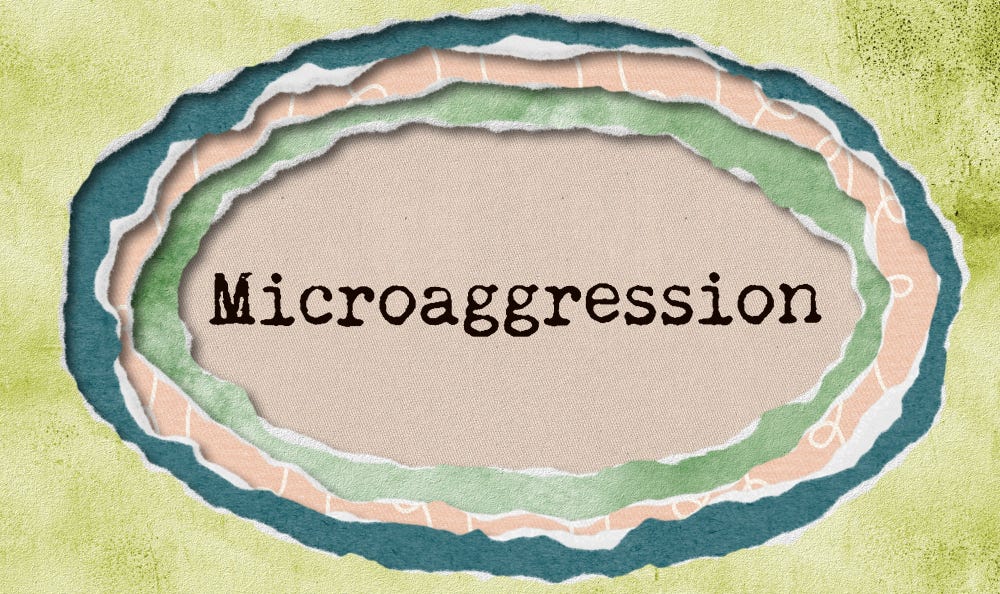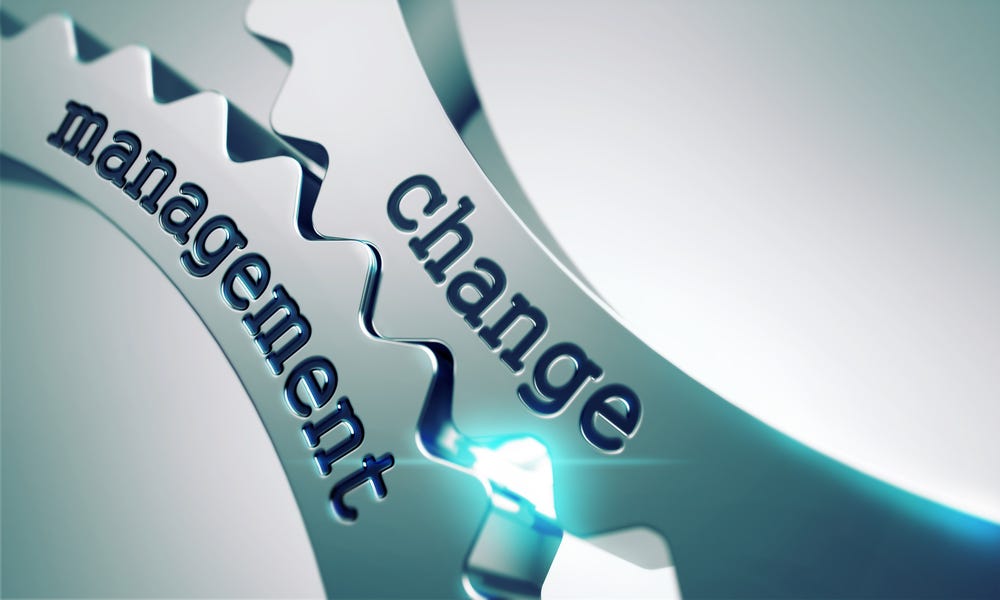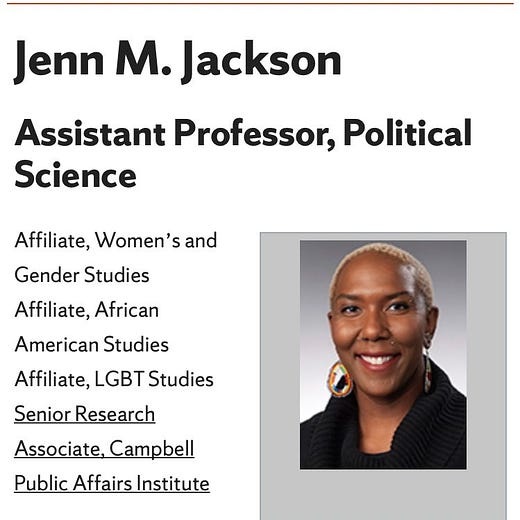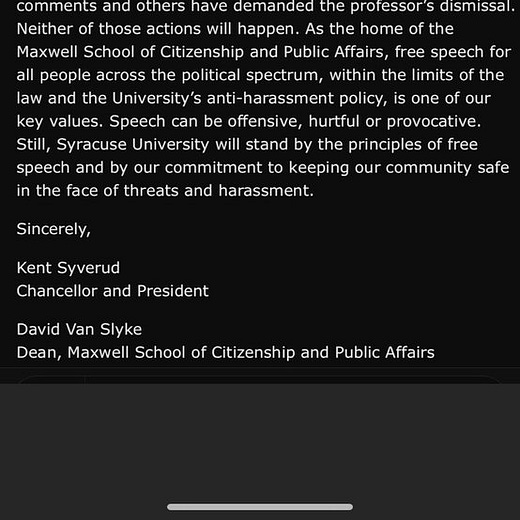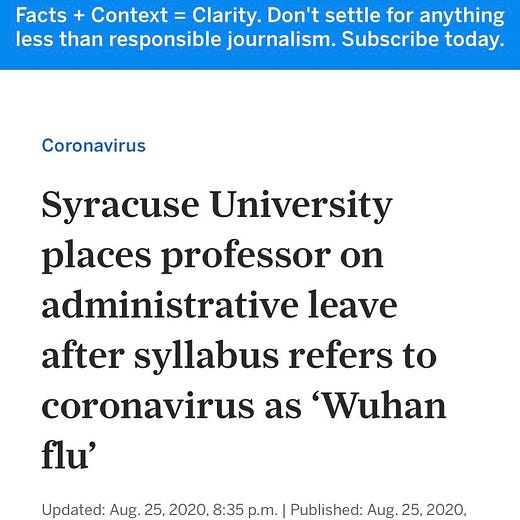E-Pluribus | September 14, 2021
Are there words that should never be said, are microaggressions real, and America is change - right and left.
A round up of the latest and best writing and musings on the rise of illiberalism in the public discourse:
Randall Kennedy: Is It Ever OK to Enunciate a Slur in the Classroom?
The Chronicle of Higher Education published an essay adapted from Harvard Law School Professor Randall Kennedy’s new book, Say It Loud: On Race, Law, History, and Culture. In an era of “triggering” and sensitivity and “safe spaces,” Kennedy takes a somewhat contrarian view of vocalizing even the most offensive language in his classroom if done with proper context. To do anything less is to inadequately prepare students for the real world.
I am skeptical of some of the claims of hurt. I suspect that some of them are the product of learned strategic ripostes. It is now well known that in certain settings, particularly those that strive to be socially enlightened (like colleges and universities), you can effectively challenge speech to which you object by claiming not only that it is socially abhorrent (racist, sexist, transphobic, etc., etc., etc.) but that it makes you feel insulted, offended, or endangered.
Why the objection to circumstances in which it is clear that the instructor was deploying the term only for pedagogical purposes? Because vocalizing the term has become, in the eyes of many objectors, a symbol of either obtuseness or defiance: a sign that the (white — more about that later) instructor is unaware that he or she ought never, ever vocalize the term, or a sign that the instructor is disobeying that injunction. I am convinced that in a substantial number of instances these fights are not really over hurt feelings.
They are struggles over status and power. Objectors have made avoidance of vocalizing “nigger,” even in the guarded circumstances of classroom instruction, a matter of taboo in which the failure to abide by the rule of avoidance is taken as a sign of disrespect. It is not the word or the circumstances of its deployment in the classroom that causes anger. What causes anger is the “failure” of the teacher to submit to the objectors’ demand, regardless of the circumstances.
But my position remains the same even in the case of the objector who genuinely experiences hurt feeling upon hearing the N-word. That is because of my view of “feelings.” Feelings are not unchangeable givens, untouched and untouchable by how their expression is received. Feelings are, at least in part, influenced by the responses of others. The more that schools validate the idea that hurt is justified in the circumstances pertinent here, the more that hurt will be expressed, and the more there will be calls to respect expressed feelings of hurt by avoiding, prohibiting, or punishing what is said to trigger them. I insist upon pushing in another direction, advancing the message that, in circumstances in which “nigger” is aired for pedagogical purposes, there is no good reason to feel hurt.
It does no favor to students to spare their feelings if doing so comes at the expense of valuable education. Professor Stone concluded that vocalizing the N-word was “useful” but inessential. In my view, “useful” instruction should be pursued. Lawyers and judges frequently encounter distressing sights and sounds as part of their professional responsibilities. Every year, in hundreds of cases, “nigger” is heard in courts. It figured prominently in one of the most infamous murder trials of the 20th century — the O.J. Simpson case. A lawyer who becomes distracted or depressed upon hearing “nigger” or any other slur is a lawyer with a glaring vulnerability. I would hope that part of what a law school would impart to students are techniques of self-mastery that will enable them to manage their feelings in order to assist optimally the people and institutions that will rely upon them for guidance.
Read it all here.
ICYMI: Jesse Singal: Does The Racial Microaggressions Scale Actually Measure Exposure To Microaggressions?
At his Substack, Jesse Singal recently unlocked a subscriber post from June exploring one of the marquee woke buzzwords “microaggressions.” Not only can the actions that qualify as such be difficult to pin down, but the alleged impacts are less than clear as well.
Backing up just a little: Microaggressions are seen as a big deal in large part because studies appear to correlate exposure to them with various negative outcomes, most notably mental-health outcomes. To demonstrate this, you ‘simply’ correlate the frequency or severity of someone’s microaggression exposure to their present mental-health status.
‘Simply’ is in air quotes because for many reasons, this isn’t actually simple. One of them is the almost complete ambiguity surrounding how to determine whether something qualifies as a microaggression given the expansive definition of the term and wide variety of utterances cited as examples. To be sure, some commonly-listed microaggressions are straightforwardly offensive — “You’re not like the other [members of a racial group],” for example — but many others are ambiguous, like the “melting pot” thing. It’s unclear why this should be seen as a microaggression, and you can, if you so choose (and/or run a consulting firm that can make money from doing so), decide that anything is offensive by tacking a negative story onto it. Maybe when someone says “America is a melting pot,” for example, they are implicitly, harmfully downplaying the ongoing role of racism in perpetuating segregation. (Or whatever.)
Further complicating things on the what-qualifies front is that when you ask (for example) black and Latino Americans whether they find certain utterances commonly listed as microaggressions to be offensive, you get overwhelming evidence suggesting they don’t, on average. Seventy-seven percent of black Americans and 70 percent of Latino ones don’t find the melting-pot comment offensive, for example. So you have a situation in which professors and diversity trainers are telling kids they should be offended (and could be rendered mentally ill) by utterances that the vast majority of people in their racial groups don’t find offensive. You can see why Lilienfeld was concerned! There’s some genuine potential here to make things worse, rather than better, especially when it comes to first-generation college students from minority backgrounds who are navigating majority-white spaces for the first time in their lives.
Read the whole thing.
Thomas B. Edsall: One Thing We Can Agree On Is That We’re Becoming a Different Country
In his latest for The New York Times, Thomas Edsall cites example after example bolstering the idea that, despite all the public clamor for tolerance and diversity, intolerance is making inroads instead, even on the left. The growing conflict between free expression and freedom from offense requires constant vigilance to prevent the latter from triumphing over the former.
In an Aug. 21 paper, “Cancel Culture: Myth or Reality?,” Norris writes, “In postindustrial societies characterized by predominately liberal social cultures, like the U.S., Sweden and U.K., right-wing scholars were most likely to perceive that they faced an increasingly chilly climate.”
Using data from a global survey, World of Political Science, 2019, Norris created a “Cancel Culture Index” based on political scientists’ responses to three questions asking whether “aspects of academic life had got better, no change or got worse, using the 5-point scale: 1. Respect for open debate from diverse perspectives, 2. Pressures to be ‘politically correct’ and 3. Academic freedom to teach and research.”
Using this measure, Norris found that “American scholars on the moderate right and far right report experiencing worsening pressures to be politically correct, limits on academic freedom and a lack of respect for open debate,” compared with the views of moderate and more left-wing scholars:
The proportion of those holding traditionally socially conservative values has gradually experienced a tipping point in recent decades, as this group shifts from hegemonic to minority status on college campuses and in society, heightening ideological and partisan polarization. In this regard, the reported experience of a chilly climate in academia among right-wing scholars seems likely to reflect their reactions to broader cultural and structural shifts in postindustrial societies.
Read it all.
Around Twitter
Via Heterodox Academy, Rabbi David Wolpe’s advice for the cancelled:
Has higher education created a problem for itself with its treatment of male students?
Syracuse University stands behind a professor after controversial 9/11 comments, raising issues of academic freedom and free speech, but also revealing something about who colleges are hiring to educate their students:
And finally, Wesley Yang on the brain drain caused by Diversity Management:




